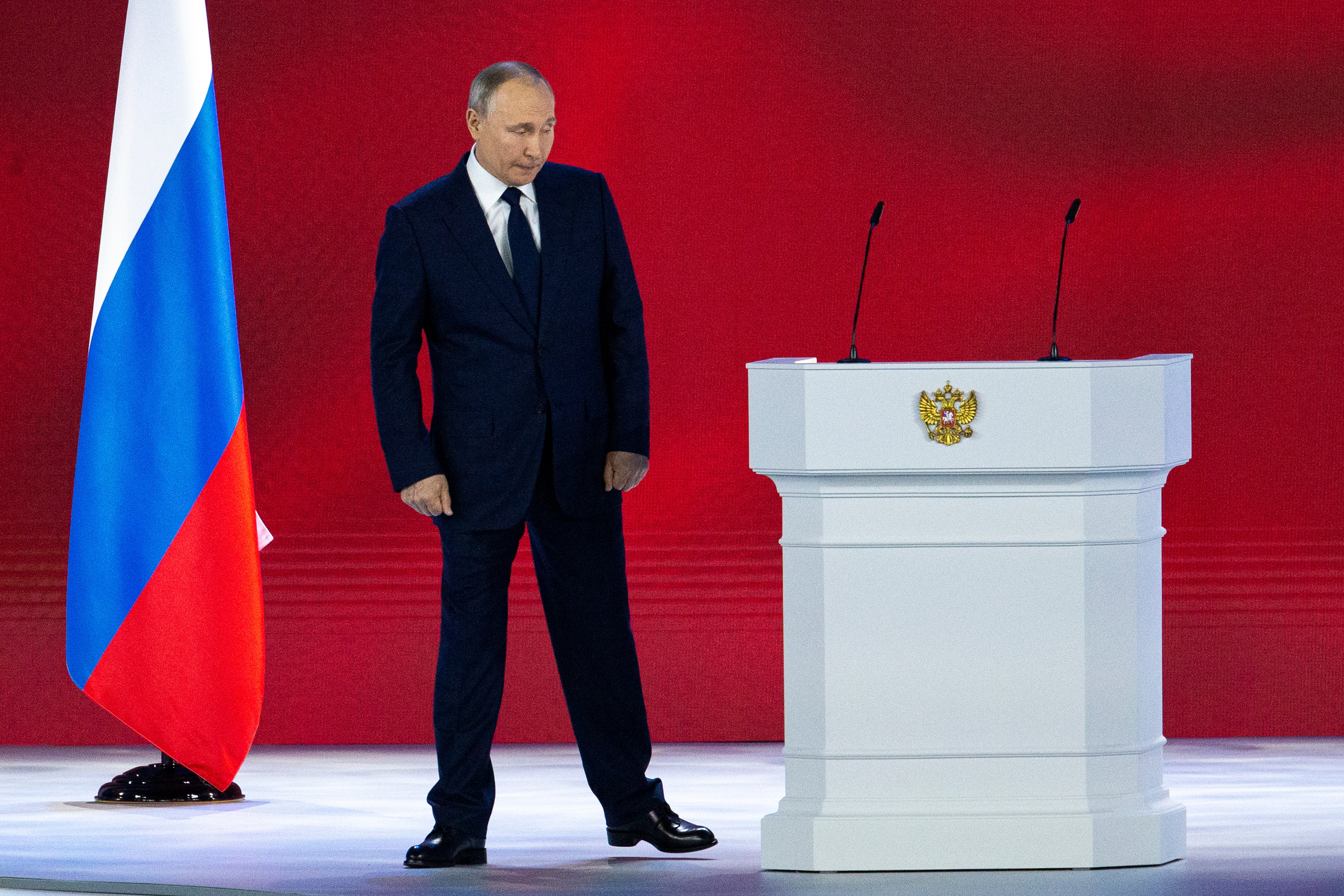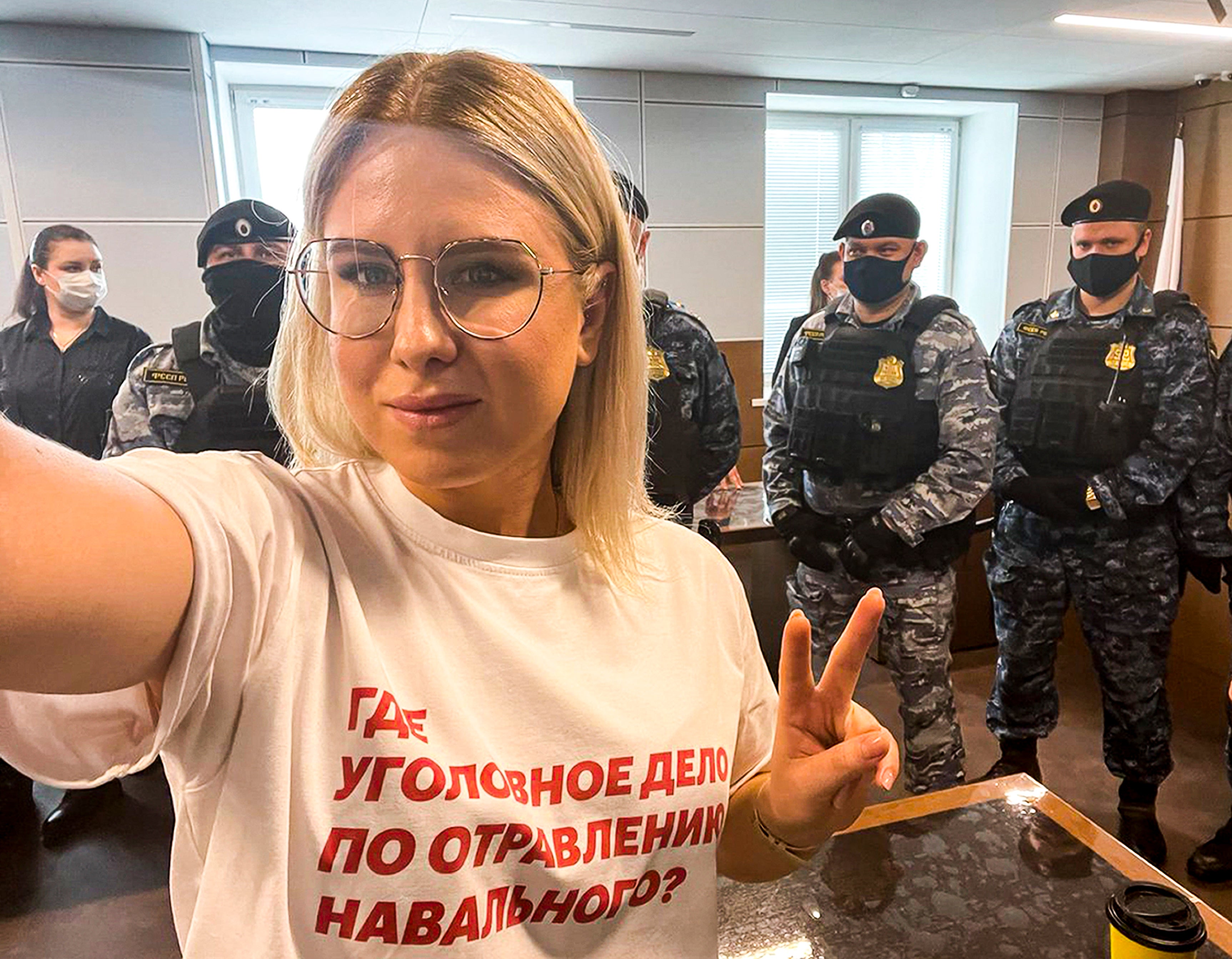Top Navalny allies arrested ahead of anti-Putin protests as Russian leader warns west
More than 100 protesters had been arrested by mid-afternoon

Your support helps us to tell the story
From reproductive rights to climate change to Big Tech, The Independent is on the ground when the story is developing. Whether it's investigating the financials of Elon Musk's pro-Trump PAC or producing our latest documentary, 'The A Word', which shines a light on the American women fighting for reproductive rights, we know how important it is to parse out the facts from the messaging.
At such a critical moment in US history, we need reporters on the ground. Your donation allows us to keep sending journalists to speak to both sides of the story.
The Independent is trusted by Americans across the entire political spectrum. And unlike many other quality news outlets, we choose not to lock Americans out of our reporting and analysis with paywalls. We believe quality journalism should be available to everyone, paid for by those who can afford it.
Your support makes all the difference.Russian authorities arrested key members of Alexei Navalny’s team on Wednesday ahead of nationwide protests and a pugnacious state of the nation address by President Vladimir Putin.
In a highly charged atmosphere, police first detained Lyubov Sobol, a lawyer for the jailed Putin critic’s anti-corruption foundation, in southern Moscow, then Mr Navalny’s press secretary Kira Yarmysh.
By mid afternoon, police had arrested 115 people at protests across Russia in support of Mr Navalny, the OVD-Info protest monitoring group said.
Mr Navalny, who survived a nerve agent attack in August, is now three weeks into a hunger strike in protest at being denied access to civilian doctors. His supporters claim he is now in a critical condition, and that the Kremlin is deliberately subjecting him to the risk of sudden death.
On Sunday, Mr Navalny’s team called for protests to apply maximum pressure on Mr Putin, with Russia’s longtime president due to give his annual state of the nation address in central Moscow at noon.
The anti-Putin rallies began in the Russian Far East an hour before the start of Mr Putin’s speech, with arrests already reported in Magadan. They will run through 8 time zones before starting at 7pm in the capital itself.
However, Vladimir Putin made no mention of his political nemesis during an 80-minute annual state of the nation speech. Instead, he devoted most of the annual address to domestic concerns about poverty, demographic problems and a stagnating economy.
The 21-year president announced an expansion of social promises. Some appeared geared to September’s parliamentary elections. There would be a one-off 10,000 rouble (£93) payment to all families with schoolchildren in mid-August, he said. There would also be new benefits for some pregnant women and single-parent families.
But the conservative speech contained none of the revolutionary announcements of last year’s address, when Mr Putin outlined an overhaul of the constitution designed to reset term limits.
It was only in the traditional foreign policy slot towards the end of the speech that Mr Putin became truly animated.
Criticising Russia had become a “sport” in the west, he said. Russia was “tolerant” and “patient” but moves to threaten Moscow’s self-defined security were “unacceptable”.

“Anyone who threatens the fundamental interests of our security will regret it like they have not regretted anything in a long time,” he said. “Russia’s response will be swift, asymmetrical and tough.”
The Russian leader claimed the “collective west” had crossed undefined “boundaries” in Belarus, where autocrat Alexander Lukashenko has clung on to power with Russian support despite a popular uprising and losing an election badly.
Mr Putin repeated shaky claims that Mr Lukashenko had been subject to an assassination attempt – an unverified theory that some suggested had been put forward to justify a soft annexation of the eastern Slavic state by Moscow.
The Belarusian leader himself trailed plans for a “historical” agreement with Russia in the lead-up to Wednesday’s speech. In the event, the address contained no specific announcement on Belarus.
Mr Lukashenko is, however, due in Moscow tomorrow for talks that could change that.
Join our commenting forum
Join thought-provoking conversations, follow other Independent readers and see their replies
Comments